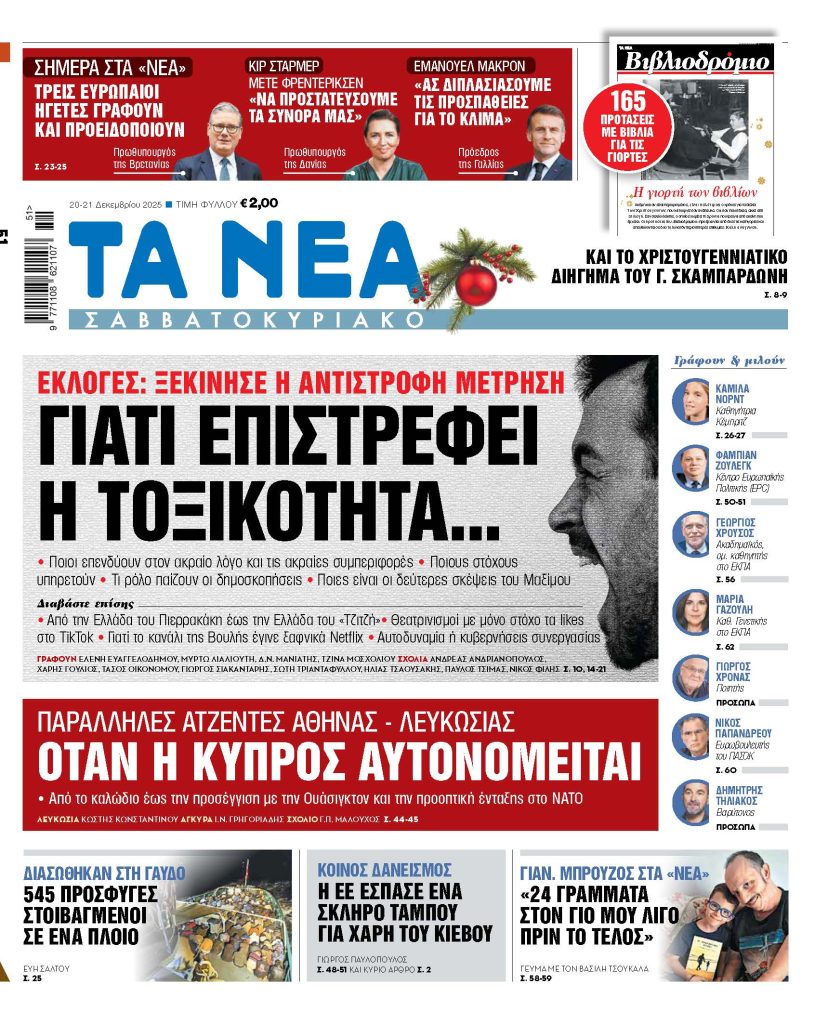Amidst mounting pressure from Turkey over the Republic of Cyprus’ hydrocarbons programme, Cyprus’ President Nikos Anastastiadis provoked a political uproar with his unprecedented references to a Turkish-Cypriot Exclusive Economic Zone (EEZ).
“If they [Turkey] choose to defend the rights of the Turkish-Cypriots to a separate, independent entity, then they must limit themselves to whatever is the proportion that belongs to the said illegal entity. Consequently, they have no reason to dispute the sovereign rights of the Republic of Cyprus,” Anastasiadis declared.
The statement is unprecedented for a Cypriot leader, as the Republic of Cyprus is the sole internationally legitimate authority of the island republic, nearly 40 percent of which has been occupied by Ankara since 1974.
When the Republic of Cyprus was admitted to the EU in 2004, Protocol 10 of the Treaty of Accession accepted that the republic is the sole legitimate authority, but that the European acquis (the body of EU laws and regulations) are suspended in the occupied north, pending a settlement.
‘Dangerous statement, dividing Cyprus’ EEZ’
Opposition parties immediately blasted Anastasiadis remarks as inconceivable. The large communist AKEL party’s general secretary, underlined that Cyprus has only one, indivisible EEZ, and that all that remains to be done is to delineate with that of the Republic of Turkey.
Main presidential contender Nikolas Papadopoulos, son of the late president who rejected the Annan Plan in 2004, called Anastasiadis’ remarks ‘dangerous and wrong’.
“With these statements, Mr. Anastasiadis is essentially dividing Cyprus’ EEZ and handing half of it over to the pseudo-state [Turkish occupation regime],” Papadopoulos said.
The uproar was clearly a major, unexpected gift to the Papadopoulos campaign.
Feverish damage control
Anastasiadis’ government spokesman Nikos Christodoulidis, in a frantic effort at damage control, said that the huge backlash was merely “an effort by some people to create false impressions with electoral ulterior motives”.
“To restore the truth, we note that President Anastasiadis in his statements yesterday repeated what everyone knows, that Turkey diachronically invokes the alleged interests of the Turkish Cypriots, to justify its illegal and provocative actions against the Republic of Cyprus,” the government spokesman said in a written statement.
Challenging sovereign rights
Turkey has for years challenged Cyprus’ right to explore for hydrocarbons in its Exclusive Economic Zone, and by all indications it is preparing to conduct its own drilling within that zone in the near future.
In late December, Turkey announced it will be conducting seismic surveys northeast of Cyprus’ waters through March.
The move came on the eve of the Italian energy giant ENI’s planned drilling in Cyprus’ block six.
Turkey encircles Cyprus with NAVTEX
In the context of an ongoing cold war that threatens to heat up, just in the last days Ankara issues a NAVTEX (navigational telex) with which it ties up 41,000 square kilometres of the waters around Cyprus – from the Akamas Peninsula in the northwest to the Cavo Greco in the southeast, essentially encircling the island, between 2-7 January.
George Gilson
- Η συγκλονιστική ιστορία της Μισέλ Νιούτον: Είχε απαχθεί τριών ετών και βρέθηκε 42χρόνια μετά – «Δεν είσαι αυτή που νομίζεις»
- «Βούλιαξε» με Άγιους Βασίληδες το κέντρο – Πάνω από χίλιοι δρομείς στο φετινό Santa Run της Αθήνας
- Κύκλωμα ναρκωτικών με ντίλερ ανηλίκους: «Θα φας ξύλο μπρο» – Στο φως αποκαλυπτικοί διάλογοι




